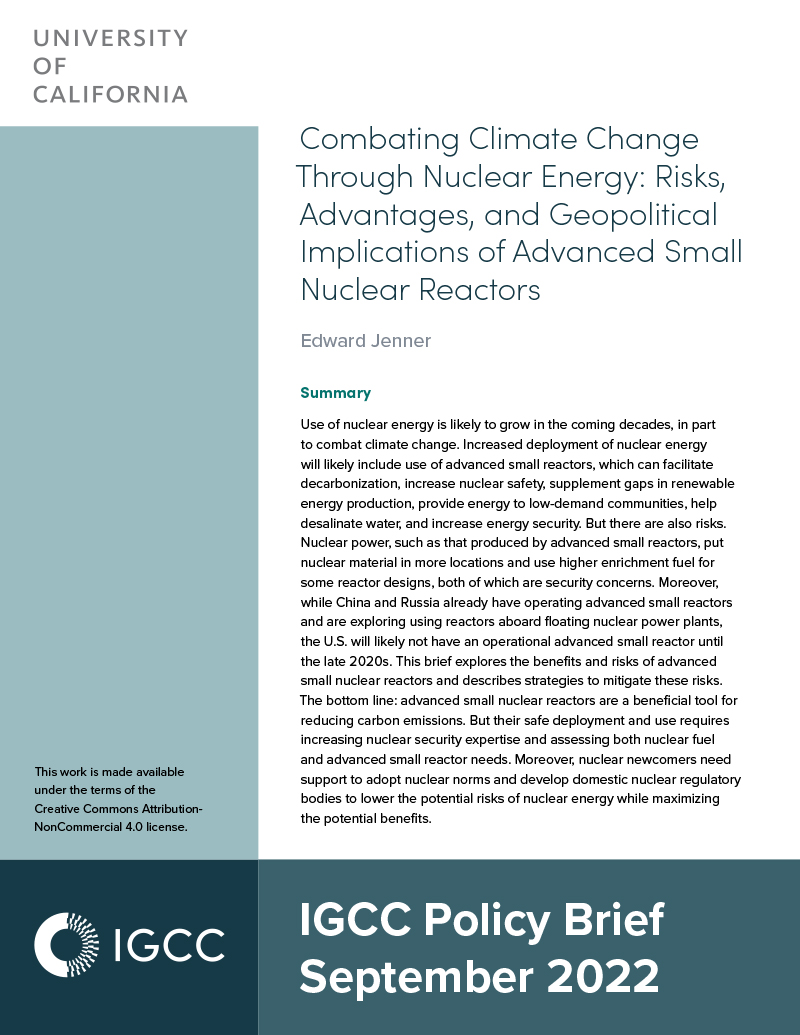Combatting Climate Change Through Nuclear Energy: Risks, Advantages, and Geopolitical Implications

In this policy brief, postdoctoral fellow Edward Jenner analyzes the risks and advantages of advanced small nuclear reactors.
DownloadUse of nuclear energy is likely to grow in the coming decades, in part to combat climate change. Increased deployment of nuclear energy will likely include use of advanced small reactors, which can facilitate decarbonization, increase nuclear safety, supplement gaps in renewable energy production, provide energy to low-demand communities, help desalinate water, and increase energy security. But there are also risks. Nuclear power, such as that produced by advanced small reactors, put nuclear material in more locations and use higher enrichment fuel for some reactor designs, both of which are security concerns. Moreover, while China and Russia already have operating advanced small reactors and are exploring using reactors aboard floating nuclear power plants, the U.S. will likely not have an operational advanced small reactor until the late 2020s. This brief explores the benefits and risks of advanced small nuclear reactors and describes strategies to mitigate these risks. The bottom line: advanced small nuclear reactors are a beneficial tool for reducing carbon emissions. But their safe deployment and use require increasing nuclear security expertise and assessing both nuclear fuel and advanced small reactor needs. Moreover, nuclear newcomers need support to adopt nuclear norms and develop domestic nuclear regulatory bodies to lower the potential risks of nuclear energy while maximizing the potential benefits.